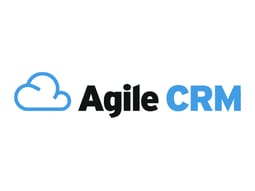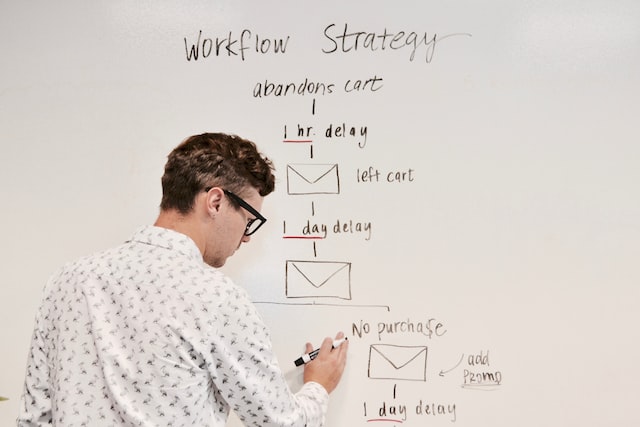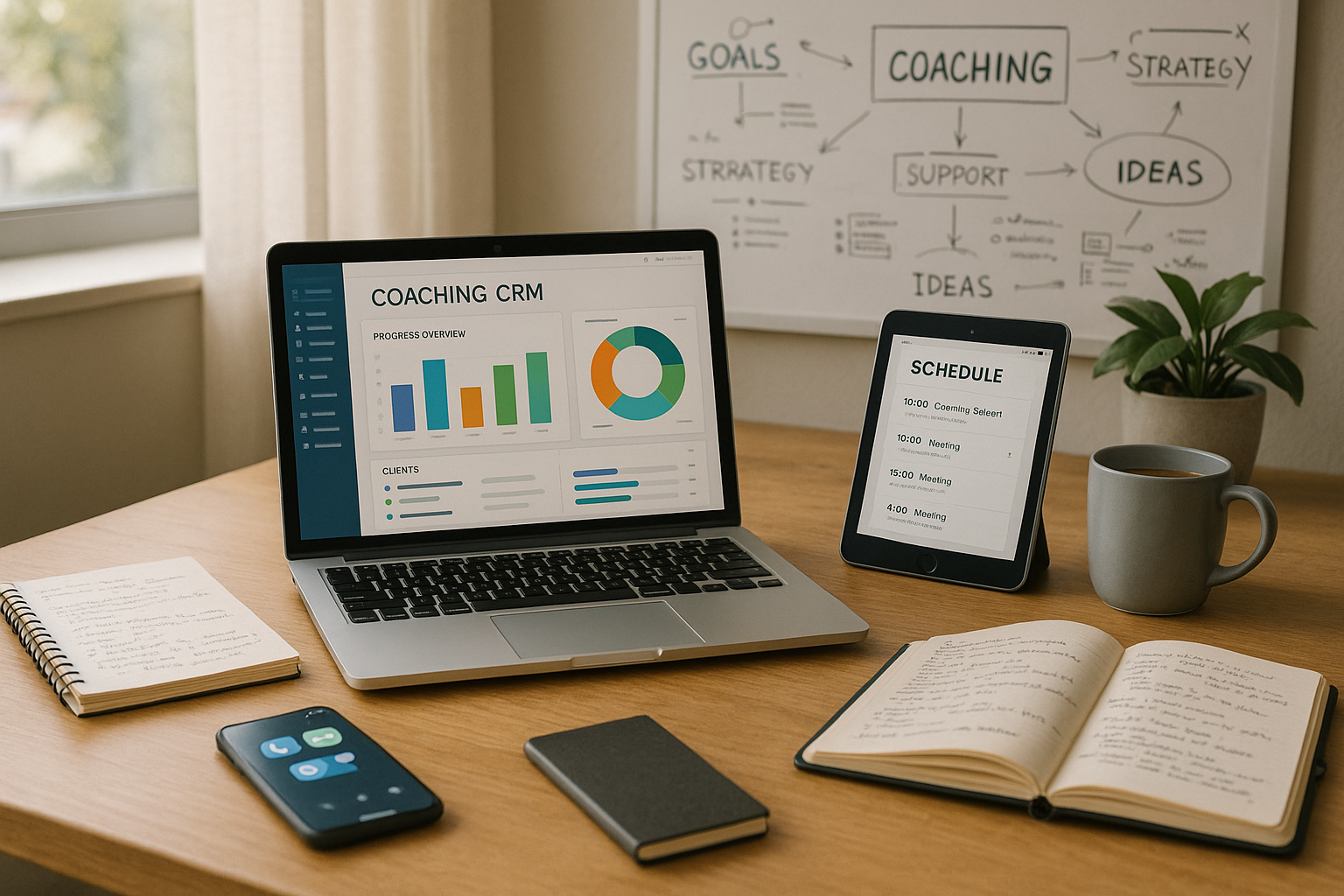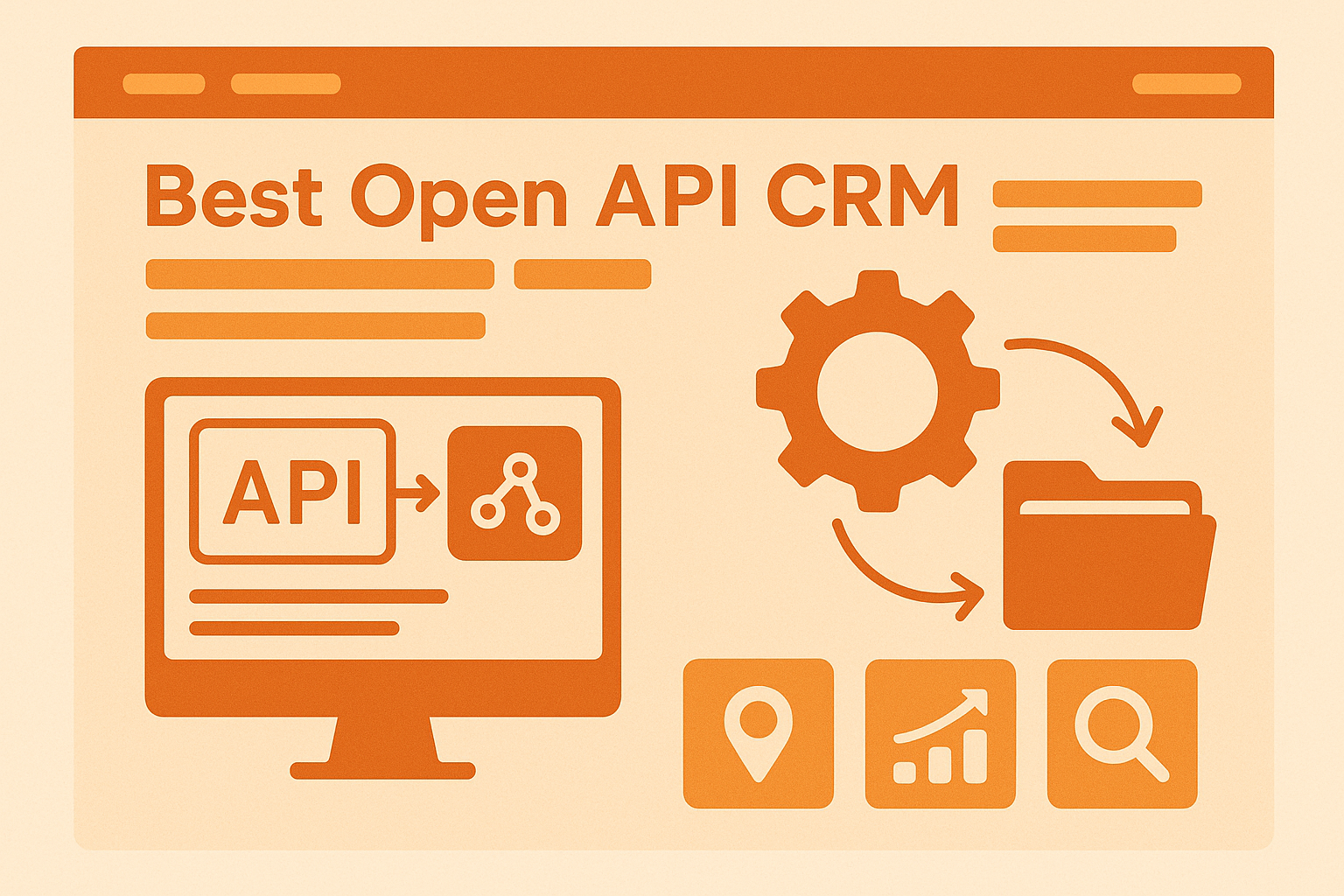What is the CRM process?
Focusing on meeting the needs of customers while implementing a general strategy of interaction with them determines a new approach to company management, which was named "the CRM process". Its main principle is coordinated corporate interaction with clients based on integrated information about the client.
The implementation of the CRM process is carried out by customer relationship management systems that allow you to use all the advantages of automation to organize a unified approach to the functioning of front-office services.
[Related Article: CRM Implementation in 10 Steps]
Here are CRM options that you can consider for implementation:
-Mar-27-2024-01-16-44-6058-PM.png?width=300&height=150&name=%D0%94%D0%B8%D0%B7%D0%B0%D0%B9%D0%BD%20%D0%B1%D0%B5%D0%B7%20%D0%BD%D0%B0%D0%B7%D0%B2%D0%B8%20(1)-Mar-27-2024-01-16-44-6058-PM.png)
HubSpot
CRM was created ready for the modern world to help users run businesses and start selling. Moreover, it is the ultimate CRM for web designers, offering a versatile toolkit that improves client relationships.

Fireberry
Fireberry’s most distinct and advantageous feature is its customization abilities. You can take the pre-built system and then personalize it to your specific business’s details, workflow, pipelines, and more.
-Mar-27-2024-01-16-53-6931-PM.png?width=300&height=150&name=%D0%94%D0%B8%D0%B7%D0%B0%D0%B9%D0%BD%20%D0%B1%D0%B5%D0%B7%20%D0%BD%D0%B0%D0%B7%D0%B2%D0%B8%20(4)-Mar-27-2024-01-16-53-6931-PM.png)
Salesforce
Salesforce is an industry leader known for its mammoth feature set and endless customization options. The platform can adapt to any industry, from manufacturing to insurance.
-Mar-27-2024-01-16-32-1218-PM.png?width=300&height=150&name=%D0%94%D0%B8%D0%B7%D0%B0%D0%B9%D0%BD%20%D0%B1%D0%B5%D0%B7%20%D0%BD%D0%B0%D0%B7%D0%B2%D0%B8%20(5)-Mar-27-2024-01-16-32-1218-PM.png)
monday sales CRM
Let monday sales CRM do the grunt work while your team stays focused on high-level tasks, such as creative projects, business strategy, and relationship building.
What are the Different Types of CRM?
Depending on the needs of the company and the scale of interaction with customers, it is possible to use CRM systems of different levels of automation. The choice of a specific solution is based on a detailed study of the specifics of the business of each specific company, the business goals and tasks of the company, as well as the cost of the project.

1. Operational CRM
The main goal of such a system is to integrate and automate sales, marketing and customer support. These functions are implemented through boards that provide an overview of all the activities of the company, and through separate pages for each client of the company. These pages contain customer information, sales history, calls, important customer dates, and more. Components of operational CRM: blocks of automation of sales, marketing and service.
2. Analytical CRM
Its main task is to analyze user data collected from various sources and present this data so that managers make informed decisions. For example, through such an analysis, a company can understand that sales among specific customer groups have fallen recently. Based on the received data, a decision is made to launch a marketing campaign aimed at promoting products among this customer base.
3. Collaborative CRM
An important goal of such CRM systems is to unite external stakeholders: suppliers, sellers, distributors. The exchange of customer information between these organizations is also important. For example, feedback is collected through support calls, then the data is used in the marketing department. This type of CRM system provides collaboration with clients, i.e. customers have the opportunity to interact directly with the company's CRM system. Interactions can be carried out through web pages, e-mail, automatic voice communication, etc.
[Related Article: The Best Marketing Automation Software & Platform]
Why is CRM Important?
CRM, through process automation, helps to build a dialogue with the buyer more effectively, avoid mistakes in work and, as a result, sell more to him.
CRM will generate all the necessary documents according to templates, set tasks for managers at all stages of the transaction, create reports on the specified indicators, calculate the cost of services and much more. Reducing the number of errors and speeding up all business processes directly affect the efficiency of the company.
Yet there are bigger reasons why a solid CRM platform is an essential business tool: improving profitability, improving productivity, and improving customer service.
So, CRM is necessary for an organization if it needs:
- improving the quality of service;
- cost minimization;
- elimination of the human factor;
- division of areas of responsibility;
- regulation of relations between participants in the process;
- unified IT structure;
- efficient resource management;
- constant control and transparency of employees' activities;
-
continuous improvement of activities.

What is the CRM process cycle?
The process of relationship with consumers includes many tasks: identifying target consumers, managing sales, optimizing information exchange, improving customer relations, determining customer needs, analyzing feedback, etc.
Most of these tasks can be structured into groups. Groups form the basic processes of the cycle of interaction with consumers (customers). The structure of existing CRM systems is aimed at supporting each of the stages of this cycle.
In general, the cycle includes:
- marketing;
- sales;
- service.
Groups of tasks that CRM systems solve make it possible to realize the basic needs of an organization for customer relationship management. Each of these elements should work in concert, provide processing, storage, feedback and management of all information on the relationship with customers.
Great CRM Software for Small Business
4.9
Fireberry is built to be used by everyone. The day to day framework is intuitive, and every part of the system comes with detailed guides in our help center.
Fireberry’s unique customization abilities in every part of the system allow its use by many different industries, such as real estate, healthcare, education, and so much more. You can also collaborate with one of our partners to help you set up and optimize the system.
Yes, Fireberry’s mobile app allows you to work on the go. You can easily access any information and even be in touch with clients directly from the app. In this way you can keep your data up to date while moving between classrooms, sharing equipment, showing listings, and more.
CRM processes list: 4 steps
1.Define business goals
Without goals, any CRM process will not work effectively enough. So start with this step. For example, if one of your business goals is to double your sales in the next quarter, you can create a CRM strategy that answers the following questions:
- What needs to be done to increase the client base?
- What needs to be done to keep current customers coming back?
- How to get customers to invite their friends?
2.Lead generation
It is the process of generating targeted traffic of potential customers with contacts. A properly configured and optimized CRM system for your business processes will help your team achieve goals such as:
- Increase in the number of applications.
- Decreased bounce rate.
- Improving customer retention.
- Revision of marketing plans.
High-quality tools related to increasing the effectiveness of an advertising campaign are at the heart of the lead generation process. Your well-being grows along with the well-being of your customers. This is the key to strategic development, essential for a successful relationship with your customers.
3.Lead conversion
Attracting a lead is only part of the job. It is much more difficult to push a potential client to order. Lead conversion is one of the most important functions of a CRM system. Lead qualification is the very first stage of the sales process, which can include low potential opportunities.
With the help of a CRM system, the company manages the sales cycle more effectively, and the results are more predictable. Sales employees get a holistic picture of the prospects for transactions. A CRM system allows you to convert marketing leads into real customers.
4.Quality customer service
Increased customer loyalty and sales growth. The client feels satisfaction from communication with the company. The probability of his leaving to competitors decreases. The CRM system helps to simplify interaction with customers. Among its tools, an important place is occupied by integration with SMS mailing services. This allows you to set up automation so that the system itself sends SMS notifications to customers about the status of their orders. Keeping up to date helps improve the quality of customer service.
Improving service is not an easy task. It is necessary to carefully prescribe quality standards for customer service and monitor their implementation, to be in touch with customers and respond to their desires and claims. At the same time, do not forget to keep a balance in the number of notifications, because excessive persistence annoys people and pushes them to abandon you.

Why Should you Implement a CRM Process?
If there is automation - a program, but no strategy has been developed, then the effect of the work is also small, it does not differ from what it was before implementation. If there is automation - a program, but no strategy has been developed, then the effect of the work is also small, it does not differ from what it was before implementation. Process of CRM in marketing keeps your sales funnel running smoothly as current and new customers move through it. This is necessary so that you can receive analytical information from the site or from e-mail in a timely manner for further development of all stages.
In particular, the right CRM service should integrate with your project management service. Employees across departments can then use the updated customer information in their daily project decisions.
Process of CRM includes all aspects of interaction: from various business contacts, to sales, as well as servicing customer requests. The main purpose of using a CRM system is to manage and organize customer information. This makes it possible to understand the behavior of customers and organize more effective communications.
Create a better customer experience with the CRM process
Customer experience includes the totality of all sensations and impressions received by the client when purchasing goods or services throughout the entire time of interaction with the supplier, from the search for information, its evaluation and to direct contact, purchase, use. In order to evaluate such emotional experiences, you need to establish feedback with the client, and in order to manage them, you must have an understanding of the preferences, behaviors, and value hierarchy of your clients.
CRM technologies allow segmenting customers according to various demographic and behavioral characteristics, defining a unique offer for a given target group, assigning delivery channels and interaction scenarios. Together with the loyalty program management functionality, these capabilities form the basis of a platform to provide a unique customer experience when interacting with the company.
[Related Article: What is Customer Service? Definition, Types, and Benefits]
Best CRM Software Providers
Agile CRM
 Agile CRM offers sales, marketing and service automation tools in one platform. In addition, all paid tiers offer email and phone support. This CRM helps increase user engagement and motivate sales teams to achieve results through gamification tools, friendly competition and team collaboration. There are custom leaderboards that show the performance and ranking of each employee.
Agile CRM offers sales, marketing and service automation tools in one platform. In addition, all paid tiers offer email and phone support. This CRM helps increase user engagement and motivate sales teams to achieve results through gamification tools, friendly competition and team collaboration. There are custom leaderboards that show the performance and ranking of each employee.
Read a Detailed Agile CRM Overview
HubSpot
HubSpot CRM is our pick of the best CRM for unlimited users as it offers many of the features usually included in paid solutions. Some of its free tools include pipeline management, email integration, marketing automation, reporting dashboards, email tracking, ticketing, and ad management. This platform also has a user-friendly interface that makes it easy for reps to manage their clients.
Read a Detailed HubSpot CRM Overview
Pipedrive
A feature of Pipedrive is the speed of operation and the flexibility of settings. Using its unique pipeline management feature, you can visualize the entire sales process and view the entire customer journey. The service can integrate with e-mail, generate reports, predict sales. The presence of mobile applications allows you to access CRM from anywhere. Another advantage is the integration of the service with a number of popular online tools, in particular the Trello task management service, Zapier automation solutions and Google applications.
Read a Detailed Pipedrive CRM Overview
How to Pick the Right CRM for Your Business?
Today, thanks to a large selection of software products on the market, you can choose a CRM system for almost any purpose and any budget. The main criterion for choosing a CRM system is its functionality. Here are the most requested features:
- Custom objects
- Sales automation
- Marketing Automation
- Data automation
- Ticket automation
- Recurring Revenues Reporting
- Multi-Currency
- Activity history
- Contact Management
- Mobile
- Email Integration
- Calling Function
- Calendar/Booking
- Social Media
The right CRM system simplifies the work of employees, collecting and analyzing data, interacting with customers and generating reports. This is a program that helps you get rid of the daily routine and direct your work energy into a more productive direction. The main thing is to choose a CRM that suits your goals.
[Related Article: How to Choose a CRM System]

Conclusion
Three pillars of the CRM process: strategy, technology and automation. For successful implementation, all 3 components must be at the same time, otherwise the project remains in jeopardy. The software itself is only one of three components. FindMyCRM will help you choose the right CRM, learn how to use its features 100% and get the most out of it.






